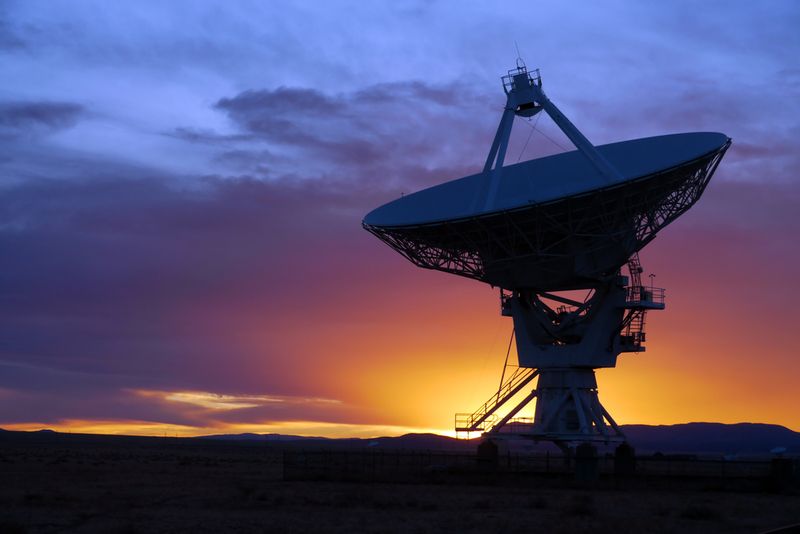The Fermi Paradox has long puzzled humanity and over the years countless solutions have been proposed, some of them darker than others. Now, yet another paper offers an answer to the question of why haven't aliens got in touch yet, one that is pretty scathing for us humans: maybe we’re just not smart enough.
Earth is perhaps not technologically advanced enough to be worth aliens’ time, and Earthlings, therefore, are of little interest, the paper, which is yet to be peer-reviewed, proposes. Aliens, if they exist, are likely far more concerned with finding signs of technology than signs of life and so may have been overlooking us all this time.
The Fermi Paradox posits that if space is so vast and therefore the likelihood of alien life existing so high, why haven’t we heard from anyone yet? The answers put forward so far range from the unsettling to the vaguely comforting, with some suggesting we could be waiting 400,000 years before getting so much as a hello.
The new paper, written by astrophysicist Amri Wandel, hypothesizes that life may be more common in our galaxy than we think, which means any potential extraterrestrials are spoiled for choice when choosing who to contact. And unfortunately for us, humans just aren’t making the cut.
“If biotic planets are so abundant that habitability and life alone do not provide a sufficient motivation for alien interstellar exploration, planets with technosignatures may attract alien civilizations to send probes,” Wandel writes.
These technosignatures, such as radio broadcastings, however, are difficult to detect. Earth first broadcast radio transmissions that were detectable in space less than 100 years ago, which means, Wandel says, that only civilizations a maximum of 50 light-years away could have noticed these signals and replied. The radio waves themselves could have reached the nearest 15,000 stars, according to Universe Today, but this is just a drop in the ocean of the hundreds of billions of stars in the Milky Way.
“The probability that a civilization is located close enough to Earth, to detect our radiosphere and send a space probe that would reach the Solar System at present is found to be very small, unless civilizations are extremely abundant,” Wandel writes, adding that there would currently need to be 100 million or more intelligent civilizations in the galaxy for Earth’s signals to reach them.
Essentially, Earth is out here shouting “look at us, we’re smart!”, but the message just isn’t breaking through. And so aliens haven’t tried to contact us because, well, why would they? As far as they’re concerned, we have shown no signs of intelligent life.
But hope is not lost, with time and more radio transmissions, something out there may yet hear us. “As it expands, the probability that Earth’s radiosphere will engulf an alien civilization increases with time,” Wandel writes. And the probability that we’ll receive a probe back increases too: at a point in a civilization’s history, after the onset of radio communications, called the “Contact Era”, alien contact becomes more likely. This point, Wandel speculates, could be anywhere between hundreds to thousands of years away.
The paper is available as a preprint at arXiv.




